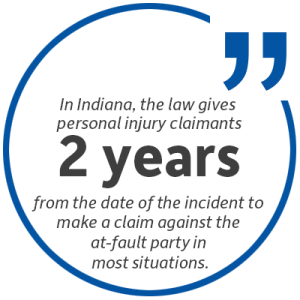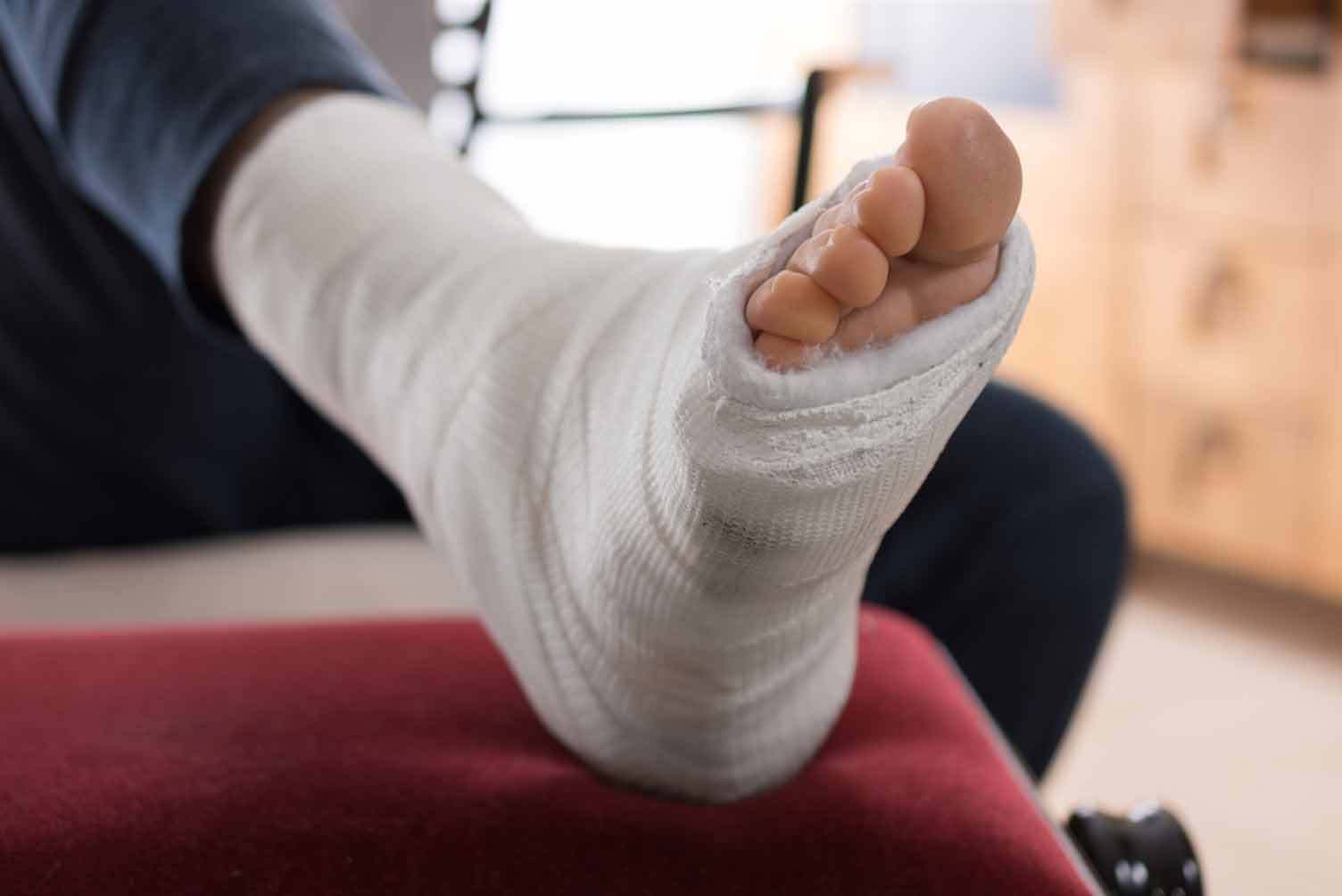Have you looked into filing a personal injury lawsuit and found a lot of language about “negligence?” The simple fact is that to win a lawsuit, you have to know Indiana negligence law and prove that one or more other parties were at fault for your injuries. One of the most common ways that someone can cause another person’s injuries is by behaving in a way that is negligent.
When someone’s negligence has caused you harm, you can file a claim to get compensation for your losses.
Proving negligence allows you to recover compensation from the legally responsible party. This is one of the most common legal grounds for liability, so let’s make sure you are informed about this important legal concept.
What Is Negligence?
According to Indiana negligence law, negligence refers to an entity or person’s failure to exercise reasonable care. To prove negligence, your personal injury attorney will need to demonstrate that all of the following statements are true:
- The defendant owed the plaintiff a duty of care
- The defendant breached that duty of care, either through action or inaction
- This breach of duty caused the plaintiff’s injuries
- The plaintiff’s injuries led to measurable damages, both economic and non-economic
These are the elements of negligence, but what do these concepts mean, and how do they apply to your personal injury lawsuit?
Duty of Care
In many different areas of life, we all have the responsibility to avoid causing harm to someone else. For example:
- A doctor has a duty of care to his or her patient
- A driver has a duty of care to his or her passengers, all other drivers on the road, and passengers
- Manufacturers have a duty of care to produce safe products that will not harm the consumer
- Commercial trucking companies have a duty of care to keep a safe and well-maintained fleet of vehicles that are not a risk to their drivers or anyone on the roads
If there is no duty between two parties, there is no liability for negligence. For example, a stranger doesn’t have a legal obligation to render aid to someone who is injured. They may have a legal responsibility to call for help, but they can’t be held responsible for not administering first aid.
Breach of Duty
Once a duty of care has been established, the next question is: did the responsible party breach that duty of care?
Not all injuries are caused by negligence. To be considered negligence, the liable party must have done something that fell below what a reasonable person might do in similar circumstances. Some examples:
- If a doctor fails to order the appropriate diagnostic tests that almost any other doctor would have ordered, that may demonstrate negligence.
- If a distracted driver is texting and driving, they have breached their duty of care to drive responsibly.
- If a store owner ignores a spill but doesn’t clean it up or put up the appropriate signage, a customer’s fall may be due to their negligence.
- A restaurant owner who serves alcohol to a clearly intoxicated patron may have breached their duty of care to the people that patron goes on to strike with a car.
Causation of Injuries
Sometimes, a person may breach their duty of care and, because of luck or circumstances, there are no negative outcomes.
For example, a distracted driver who slams on the brakes and manages to avoid an accident has not caused anyone any injuries, even if their behavior was unsafe and illegal. However, if the plaintiff in a personal injury case can demonstrate that the defendant’s actions caused their injuries, then they have a much stronger case.
If other foreseeable factors contributed to the injuries, the defendant may not be liable. Alternatively, their liability may be less than 100%.
What would this look like? Let’s consider that a distracted driver struck a pedestrian who was jaywalking. Although the texting driver may bear some of the responsibility, the pedestrian who was breaking the law may have contributed to their own injuries.
In a case like this, Indiana’s comparative negligence statute, an important piece of Indiana negligence law would certainly go into effect. The pedestrian could still file a lawsuit as long as they were less than 50% responsible for the accident.
Measurable Damages
A person can’t sue if their injuries did not cause any measurable damages.
Let’s say that someone slipped on a patch of ice in a parking lot that should have been cleared, and they pulled a muscle in their leg. If they did not need any medical care, did not have to take any time off work, and suffered no significant consequences from their fall, then there are no measurable damages to sue for.
What if that fall led to things like this?
- Pain and suffering
- Missed work
- Medical bills
- Rehabilitation costs
- A hospital stay
- Surgery
- Lost earning capacity
Those are some of the serious economic and non-economic damages that a person can experience because of a personal injury.
How a Personal Injury Attorney Can Help

Indiana negligence law makes it difficult to go through the process of seeking compensation by yourself. Proving negligence can be quite a challenge. It is a complex legal situation that requires an in-depth investigation into what happened, followed by an application of all the various legal standards associated with filing a personal injury lawsuit.
Working with an attorney is one of the best choices you can make when recovering from a personal injury, as it means you don’t have to try to figure all of this out on your own. You increase your chances of getting a meaningful compensation settlement or court award – while reducing your stress and effort.
If you were injured in a car accident, a car accident attorney can help so that you can focus on healing. A lawyer for medical negligence, on the other hand, will stand up for people who have been injured by doctors and other healthcare professionals. Attorneys for other kinds of accidents will know how to protect your rights no matter the kind of injuries you have suffered.
At Crossen Law Firm, our attorneys are experienced with every kind of personal injury.
Crossen Law Firm – Your Personal Injury Allies in Indianapolis
At Crossen Law Firm, we have been supporting accident victims in Indianapolis for more than 20 years. Our team of experienced personal injury attorneys is ready to advocate for your legal rights.
Reach out to our team to set up a free case review at 317-401-8626. We’ll look at your specific circumstances and provide a clear path forward with all of your legal options.

 317-401-8626
317-401-8626 
.jpg)